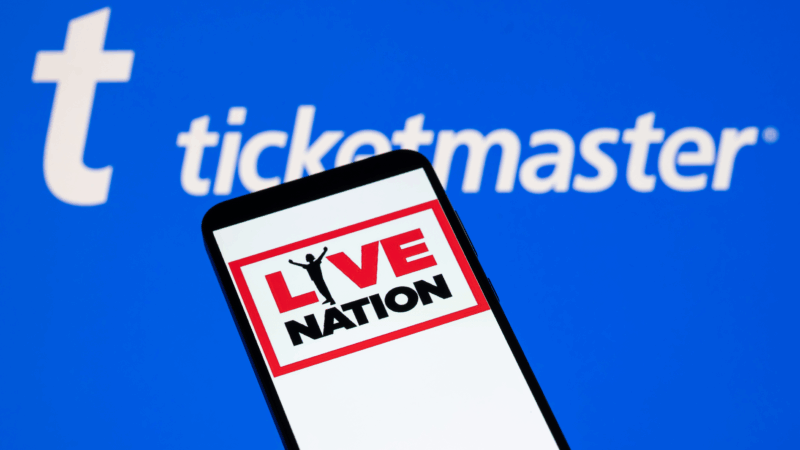In court, CEO Sundar Pichai defends Google against the DOJ’s ‘extraordinary’ proposals
Alphabet CEO Sundar Pichai testified in federal court Wednesday that a Justice Department proposal that would force Google to share its search data, including with competitors, would be a “de facto divestiture” of the company’s search engine that took decades of investment and innovation to build.
He called the DOJ’s proposal “so far reaching, so extraordinary” that it feels as though the government is asking for a sell-off of the company’s core intellectual property. He said it’s unclear how Google could go on to fund innovation if its work is to be given away at marginal cost.
Pichai, 52, addressed the court from the witness box wearing a neat, dark suit during the second week of the remedies trial that will determine which penalties U.S. District Judge Amit Mehta will levy against the nearly $2 trillion company. Almost a year ago, Mehta ruled that Google had acted illegally to maintain a monopoly on the search engine market.
When it filed its original case in 2020, the Justice Department took aim at Google’s contracts with device makers like Apple and Samsung, which made the company’s search engine the default on new phones. The DOJ argued that this unfairly boxed out competitors, and they’re asking Mehta to rule that Google must stop paying for exclusive default placements.
The government also wants Google to spin off its Chrome browser, arguing the world’s most popular browser powers the tech company’s advertising business by harvesting data from user activity from Chrome and Google search. Splitting this off would create more competition within the online search market, the DOJ argues.
This phase of the trial has also focused heavily on Google’s artificial intelligence products, like its Gemini chatbot. The DOJ has argued that Google has created a system in which its control of search gives an advantage to its AI products, while its AI products direct more users back to Google search. This, they argue, is a cycle that maintains the tech company’s dominance and blocks competitors out of both marketplaces. And to break it, they argue that Google should be ordered to license its search data — such as users’ search terms and results — to other companies.
The Justice Department wrapped its case on Tuesday afternoon and Google is now presenting evidence and calling experts and witnesses to testify, which will include more executives from Google, Mozilla and Apple. Google maintains that it will appeal Mehta’s underlying ruling once the penalty phase of the trial is over.
Pichai, who joined Google in 2004, held many roles at the company before taking the top gig, including overseeing Chrome.
The theme of his testimony was of little surprise, as the tech giant has long argued that the DOJ’s proposed remedies are both dangerous and “unprecedented” and would hurt American consumers, the economy and tech innovation. It focused on how Google views the development of AI and how it is innovating the technology.
“AI is one of the most profound technologies humans will ever work on,” Pichai said. He testified that Google has spent roughly $49 billion on AI research and development and is considered one of the top two or three companies in the world spending in this space.
When Pichai took the helm of Alphabet, Google’s parent company, he directed the company to become “AI first” and to invest deeply in this technology, believing that people are not just looking for information on the internet, but seeking to get things done. AI can do that, he said.
The company integrates AI into many products, but first wove the technology into Google’s search engine, where it led to a major improvement in the quality of search, he said.
Mehta asked Pichai how he sees AI disrupting search in just a few years. AI “will deeply transform” Google search, Pichai replied, and the way it will evolve will be very profound.
Pichai called this a “dynamic moment” when a number of newly developed chatbots are reaching tens of thousands of users each day. Pichai said Google views its AI chatbot, Gemini, as a leading model in the industry, but still a “big gap” remains between them and what he views as the market leader: OpenAI’s ChatGPT.
In court, Google’s lawyers have previously argued that ChatGPT and Meta’s MetaAI chatbots outstrip Gemini’s popularity, evidence that Google is not dominating in this marketplace.
Pichai said there is a lot of competition in this space and that ultimately, “The best product will win the marketplace.”
The DOJ had previously called Nick Turley, OpenAI’s head of product for ChatGPT, to the stand to make their case for why they fear Google’s monopoly on search could ultimately creep into the AI market. Turley testified that the company wants access to Google’s search index and data to improve its own technology. Google’s search index is basically a giant database of the pages and information on the internet. When you type a query into Google’s search engine, it scans this database in order to return links to webpages.
But AI developers can also use databases like these to train large language models, like chatbots, so that they can generate human-like responses and engage in conversations.
Turley testified that after ChatGPT became a viral hit, OpenAI tried to develop their own search index, but it was too expensive and time consuming. Instead, he said, they sought a partnership with a third party provider — and Google rebuffed them.
Google’s attorneys are expected to call witnesses through the end of next week, and closing arguments will be made at the end of May. Mehta is expected to make a decision by August.
Google is a financial supporter of NPR.
This quiet epic is the top-grossing Japanese live action film of all time
The Oscar-nominated Kokuho tells a compelling story about friendship, the weight of history and the torturous road to becoming a star in Japan's Kabuki theater.
The Live Nation trial could reshape the music industry. Here’s what you need to know
On Tuesday opening statements will begin for the federal antitrust trial against Live Nation, one of the largest entertainment companies in the world.
A new one-a-day-pill holds promise for HIV’s ‘forgotten population’
It's designed to take the place of complicated, multiple drug regimens that many people with HIV need to follow. And it's also beneficial because the HIV virus is always evolving.
For filmmaker Chloé Zhao, creative life was never linear
Director Chloé Zhao used meditation, somatic exercises and dance to inspire the cast and crew of this Oscar-nominated story about William Shakespeare's family.
10 new books in March offer mental vacations
March is always a big one for books – this year is no different. We call out a handful of upcoming titles for readers to put on their radars — offering a good alternative to doomscrolling.
Sen. Chris Coons, D-Del., talks about the war with Iran and upcoming war powers vote
NPR's A Martínez asks Delaware Democrat Chris Coons, a member of the Senate Foreign Affairs Committee, about the war with Iran.







